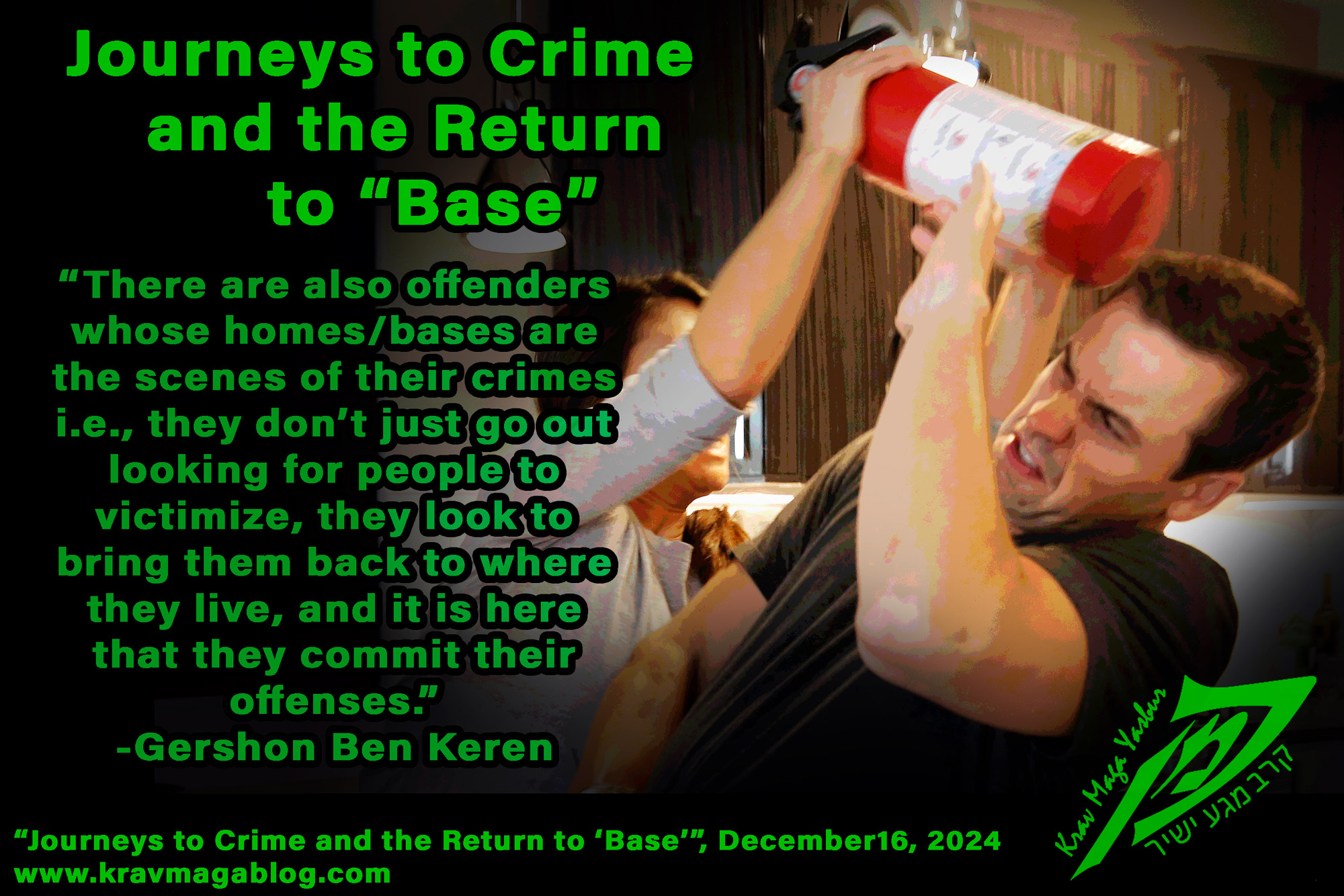The Journey-to-Crime (JTC) has always been of interest to me. There are those offenders who set out to particular locations with the intent and goal of committing a crime e.g., John Duffy and David Mulcahy – the railway rapists – who would choose and head to certain railway stations in order to select/target single women, and there are those who, like foraging animals, leave their home/base looking for opportunities to present themselves. There are also those offenders who don’t start their day with any motivation to offend and then presented with an opportunity that is too good to refuse and ignore find themselves motivated to commit a crime; many muggers/street robbers will talk about times when they had no need to commit an offense e.g., they already had enough money to fund their particular lifestyle, and then witnessed someone making a large/significant cash withdrawl from a bank or ATM etc; an opportunity too good/easy to pass on. However, there are also offenders whose homes/bases are the scenes of their crimes i.e., they don’t just go out looking for people to victimize, they look to bring them back to where they live, and it is here that they commit their offenses. In this article I want to look at a pair of serial killers whose method of operating led to them hunting/targeting individuals in one location and then bringing them back to their home in order to kill.
In 1994, Fred and Rose West were arrested and charged with the murder of their first daughter Heather West. It was believed that she was murdered because she was about to go to the police to inform them of a series of murders that her parents had committed, at 25 Cromwell Street where they lived. It was a dedicated female police officer, who alerted by a social worker to the disappearance of Heather West, led to the investigation, that uncovered a further twelve victims, whose bodies were typically dismembered and buried in and around the property. The Wests generally “found” their victims in one of two ways. Cromwell Street was located in Gloucester’s “Bed Sit” district. This was an area where large houses had been broken up by landlords into smaller units, which were relatively cheap to rent. Fred West, a builder by trade, had done the same with the house he and Rose owned, and rented out rooms to young, single women, often at a discounted rate if they agreed to help “nanny” and look after their young children, including Heather. Often, these young women were looking to escape from broken homes with abusive parents, and so lacked a support network that would miss them if they went missing. This is one of the reasons why serial killers often target sex-workers i.e., because they lack a formal/structured social network which would alert the authorities if they went missing etc. The Wests knew that it would likely not be noticed if the young women who lodged with them went missing, nor the authorities informed.
The other way that the Wests gained access to individuals that they victimized was through targeting hitchhikers. Whilst the inherent dangers of getting into a car with a strange man was understood at the time when the Wests were operating, the presence of a woman, as part of a couple, in a car “signaled” safety i.e., a woman wasn’t going to allow her male partner to commit an act of violence against another woman etc. What nobody at the time would have guessed is that it was Rose not Fred who was the driving force behind the sexual homicides they committed. The young female hitchhikers that the Wests hunted for on the rural roads of South-West England were often in a similar social position to those who they rented rooms to i.e., young women with few resources and the lack of a social support network; they were hitchhiking because they lacked money and/or people who could offer them a ride etc. Whilst Fred was of below average intelligence and had a relatively low IQ, he had a social intelligence that allowed him to understand and identify who was vulnerable. As he and Rose committed more offenses, this intelligence would have developed and grown. He would have learnt to identify the subtle signs that someone lacking confidence but trying to hide it would give off etc. In thinking about the way people try to hide things but indicate otherwise, I am reminded of a piece of advice given to Michael Caine at the start of his acting career. A director took exception at the way he was playing a “drunk”, pointing out to him that drunk people don’t want to be identified as such, and try to hide it i.e., don’t play a drunk, play someone who’s pretending not to be drunk. Predators like Fred and Rose West would learn to identify those individuals who were “acting” as if they were confident and in control, along with those who clearly weren’t – they had a head start in that those who were hitchhiking were most likely doing it out of necessity rather than by choice etc.
The Wests were not the only serial killers who used their home as a base. Dennis Nilsen – the Muswell Hill Murderer – killed all of his twelve victims, at two North London addresses where he lived between 1978 and 1983. He lured his victims to these properties through deception and then strangled them. Many of Nilsen’s targets were homeless men who he lured to his home(s) offering shelter and alcohol. Like the Wests, Nilsen targeted people belonging to a community which lacked a social support structure, people who wouldn’t be easily/quickly missed, and would soon be forgotten etc. His journeys to crime – like the Wests - involved going to the locations where those who fitted his victim profile were and then bringing them back to his base.
